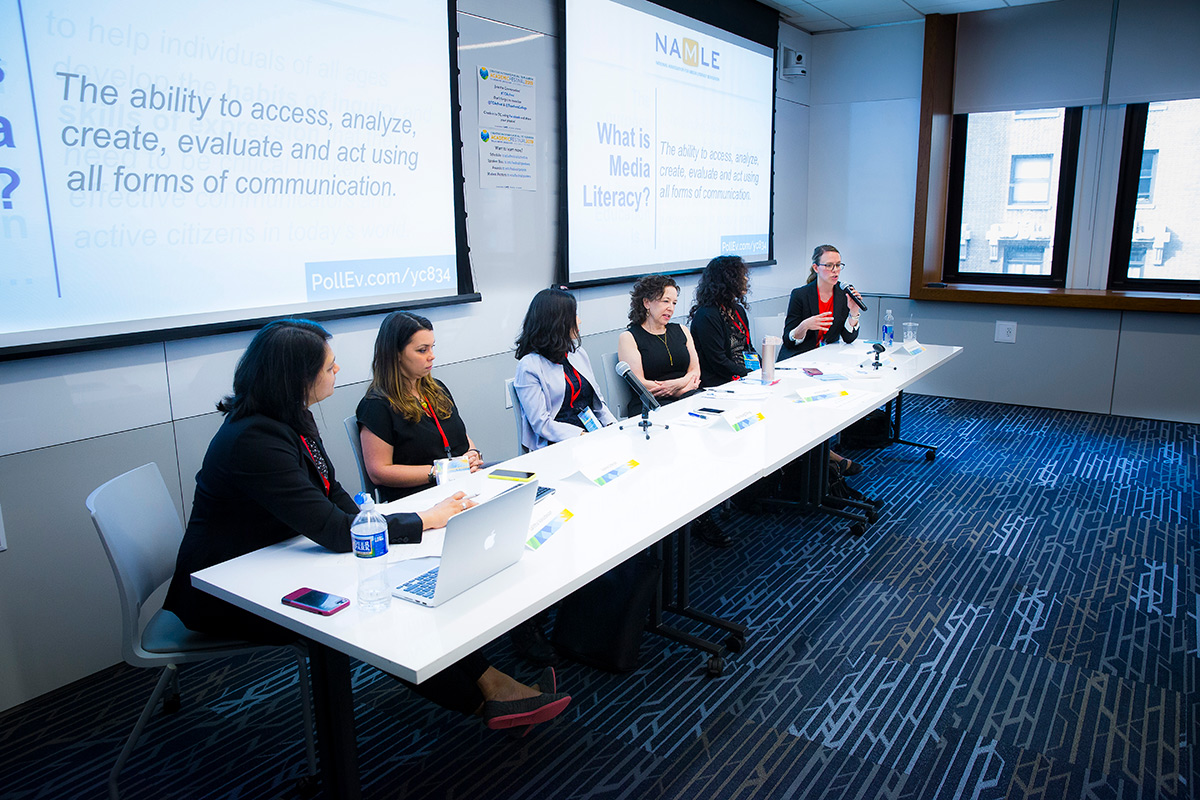Technology rests on our desktops, perches on our laps, beckons from our pockets and vibrates on our wrists.
“It bleeds through all we do,” said Lalitha Vasudevan, Professor of Technology & Education and director of TC’s Media and Social Change Lab, who directed an Academic Festival panel on Media Literacy.
And with concerns ranging from privacy to the dissemination of fake news to Russian interference in the 2016 presidential election, technology has also become a critical focus in the education of generations who’ve never known a time when the answer – accurate or not – was never more than a click away.
“We cannot simplify this,” said Michelle Ciulla-Lipkin, Executive Director of the National Association for Media Literacy Education. “These are very complicated questions and complicated issues. We need to have nuanced, complicated conversations around them.”
But those conversations need to include young people themselves, said Yoo Kyung Chang, a Lecturer in the Communication, Media & Learning Design program. “We shouldn’t be talking about them,” Chang told fellow panelists. “We should be talking with them.”
Others echoed that point. Youth often understand more about the power that technology brings to education – its potential to visualize individualize, unite, empower and accelerates., suggested Emily Bailin Wells (Ed.D ’18) an Adjunct Assistant Professor in the TC Communication, Media & Learning Design program. “Young people are engaging in unprecedented multiple literacy practices,” she said. “We’re constantly trying to catch up and learn from them.”
Academic Festival 2019
The day included an extensive lineup of presentations, panels and other events featuring TC faculty, students, alumni and staff.
Young people also have much to teach us about how technology drives their own forms of civic engagement, said Ioana Literat, Assistant Professor of Communication, Media & Learning Design. A recent study coauthored by Literat of the youth response to the 2016 presidential election debunks the notion that young people are generally apathetic about national affairs. Analyzing post-election content on three non-political websites frequented by youth, the study found that “that civic engagement is happening” in digital spaces, in the form of fan fiction, collaborative creation of audio, video, written and text-driven content, and game programming and animation.
“We need to learn from what is happening in these online, grassroots spaces and listen to young people so we can figure out how to reach them before it’s too late,” said Literat.
Ultimately, it may be educators themselves who need to do the most homework.
“Media literacy in the broadest sense is necessary for students to be prepared for civic participation,” said panelist Jessica Wolff, the Director of Policy and Research with the Center for Education Equality. And that requires teachers to develop media literacy as both a life skill and a teaching strategy. “Why not aspire for a teaching force that is media literate and can also teach media literacy within their content areas?”
